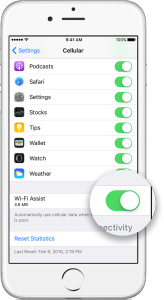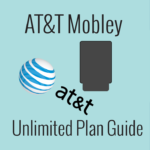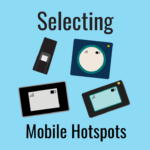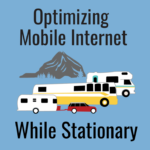
It started just over two weeks ago in Cleveland - with local reporter Teresa Dixon Murray noting in her Money Matters column that her family Verizon account was showing mysterious data usage in the middle of the night, and she asked others to chime in if they had also noticed any other strange Verizon issues.
She heard from a thousand people in response, which lead to her diving deeper into numerous stories of billed cellular usage doubling or tripling over the past few months, despite claims of no actual changes in behavior.
That story got picked up nationally, which lead to another follow-up story about a Florida woman and her surprise $9,100 bill from Verizon for 569GB in data usage. That extreme story went viral online, and a day later Verizon forgave the bill as a goodwill gesture.
But that gesture came too late - and soon the reporters Teresa Dixon Murray and John Caniglia at the Cleveland Plain Dealer were sorting through an inbox full of thousands more similar reports of Verizon customers seeing sudden and seemingly inexplicable jumps in wireless data usage.
As the reports of unexpected excessive usage kept piling up, Verizon's excuses that the users were always to blame began to seem shakier and shakier.
Now the FCC has confirmed it is investigating further, and some Verizon insider's have leaked that major issues with Verizon's billing database may be the real culprit.
Table of Contents
Verizon Insiders Report Potential Billing Issues
According to a new update to the story series published yesterday, perhaps some glitches in Verizon's billing system may be the real issue.
Teresa reports:
Industry experts including former Verizon employees say they believe some customers who make an account change are getting shifted to a different part of Verizon's billing system.
"My theory is they change plans, their account gets slid into a different part of the database and something is wrong with whatever process in the database is calculating the data use," said Patrick Nolan, a network engineer and computer and network security expert and president of IT Services Group in Washington, D.C.
That's exactly what can happen, according to one Verizon insider, who didn't want to be identified. When Verizon makes a change on some people's accounts, such as changing their plan or replacing a device, if the employee doesn't do it right, the account can get pushed into a different part of the billing system that could calculate their bills incorrectly.
"It's got to be a billing system thing," he said.
Another Verizon insider, a former tech support worker who also doesn't want to be named, said the company's billing systems are suspect. ...
"All of this is done through software that was made/coded 20 years ago,'' the former employee said. "It has trouble identifying new data, 3G, 4G....
"So during any part of the process from device to billing, the system can be confused by the incoming data and calculate it incorrectly."
Another Verizon insider said the billing problem could be as simple as the company not resetting its massive databases properly.
This isn't the first time Teresa Dixon Murray has lead a crusade against Verizon - and she has won in the past.
In 2010 her reporting spearheaded charges against Verizon's data usage billing practices that lead to Verizon refunding customers $55 million dollars for excess fees, and paying the FCC a $25 million fine.
Is Verizon at fault again this time, or are all these thousands of reports just users getting carried away with their data plans?
Burning Through Data Buckets

It is easy to burn through immense amounts of data on a cellular connection, particularly if you are using a connection for tethering a computer or as a Wi-Fi hotspot to get multiple devices online.
Many applications and operating systems treat any Wi-Fi hotspot connection as an all-you-can-eat buffet, and they will devour as much data as the connection will allow.
This ends up being a very serious problem for RVers, who rely on cellular connections as their primary way online.
And as connections have gotten faster and faster - that just leads to ever increasing usage, even though user behavior might not have changed at all.
This is the downside of fast cellular connections - and Verizon's network has been getting faster.
Almost always when we help people dig into surprise spikes in usage, we find a legitimate data hog that is at fault.
Excess usage can be traced back to cloud services, online backups, photo syncing, operating system updates, gaming systems waking up in the middle of the night, background streaming, HD video watching, or even out of control malware.
Applications running in the background can be particularly nasty data hogs, sometimes even sucking up data even if you never use them. In some recent reported cases, something as innocuous as Amazon's shopping app has seemingly been responsible for gigabytes of cellular usage.
Without obsessive monitoring, it really is easy to burn through a surprising amount of data quickly - which is why we so strongly advocate those relying on cellular data as their primary internet connection to consider a truly unlimited data plans.
But...
Where there is smoke, there is very often fire. And there is a lot of smoke surrounding Verizon's data billing right now. If the insider reports are to be believed, there may be some serious over-billing going on here. Potentially on a massive scale.
There are certainly an order of magnitude more complaints about overage charges and excessive usage being made against Verizon than against any other carrier.
It is perhaps because of the bad publicity brewing around overage charges that Verizon has recently decided to make its new "Safety Mode" feature available for free to let users opt in to slowing down their connections instead of being charged overages fees.
It is a step in the right direction - and we wish Verizon turned Safety Mode on by default.
No customer should ever have to face a surprise thousand dollar bill, even if it is a wayward app on their device that is at fault.
Reporting Suspicious Overages

If you think you might be being over-billed by Verizon, keep careful records of your usage. Do some digging into potential data hogs, and make sure that you can't isolate the problem on your end.
Odds are, it probably is on your end.
But if you think still look fishy, Verizon says that customers with questions about their bills should call Customer Care team at 1-800-922-0204. See if Verizon can point a finger at a particular web site or service that has been gobbling up your data.
If you can't get satisfaction from Verizon (or whoever your carrier is) and you want to take things to the FCC, you can file a complaint about your carrier with the FCC online, or by calling 1-888-225-5322 (888-CALL-FCC). The FCC takes these reports very seriously, and as more pile up the digging into Verizon's billing practices will get more focused.
Teresa Dixon Murray at the Cleveland Plain Dealer is still gathering more reports too, and invites emails: tmurray@plaind.com
She requests that people who write include what type of phone they have, what state they are in; and how many GB they used to use and how many GB they are using now.
Related Content:
- Common Data Hogs – Where To Start Hunting When Your Data Usage Spikes (Just Updated!)
- Understanding Unlimited Cellular Data Plans: Network Management, Throttling & Mobile Hotspot Usage
- Navigating Verizon Grandfathered Unlimited Data Plans – Assumption of Liability, Buying & Renting (Premium Guide)
- Verizon Making “Safety Mode” Free – Dropping $5/mo Fee







 Mobile Internet Resource Center (dba Two Steps Beyond LLC) is founded by Chris & Cherie of
Mobile Internet Resource Center (dba Two Steps Beyond LLC) is founded by Chris & Cherie of